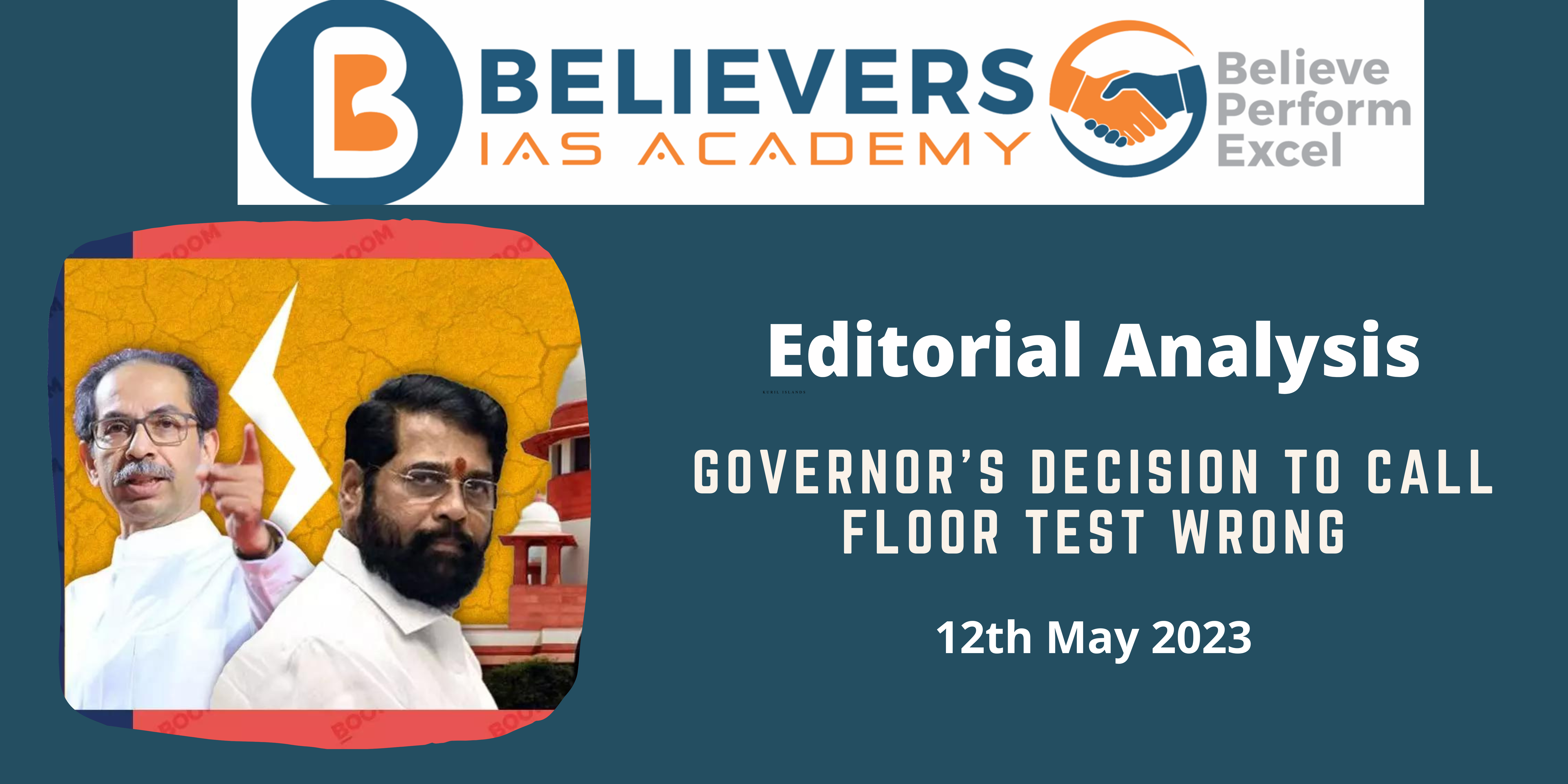Governor’s Decision To Call Floor Test Wrong
Context:
The Supreme Court ruled unanimously that the then-Gov. Bhagat Singh Koshyari “erred” in calling for a trust vote, which led to the fall of the Uddhav Thackeray-led Maha Vikas Aghadi (MVA) government in mid-2022, and effectively opened the way for disqualification proceedings against Maharashtra Chief Minister Eknath Shinde for leaving the Shiv Sena.
Points to ponder:
- The Governor’s request for a trust vote, which resulted in the demise of the MVA administration, was erroneous, the court further found. It stated that the Governor lacked any factual evidence on which he could cast doubt on the legitimacy of the current administration and that the floor test cannot be used to resolve political party disputes.
- The court ruled that there are limitations on the ability to request a floor test. The choice to request a floor test must be based on factual information and should not be taken at random.
- The court ruled that it could not overturn Mr Thackeray’s voluntary resignation from his position as chief minister and restore his MVA government. However, it also indicated that the court might have thought about reinstalling the administration led by Mr Thackeray if he had not resigned from his position as Chief Minister.
- According to the court, the Governor’s decision to invite Mr Shinde to lead the administration was justified because Mr Shinde received support from the party that had sent the most candidates to the State Assembly.
- The court declined to nullify Speaker Rahul Narwekar’s election merely because some of the MLAs who took part in the election were the subject of disqualification proceedings.
Will the Governor be able to call for a floor test?
- The Governor is given the power to call, adjourn, and dissolve the state legislative assembly under Article 174 of the Constitution.
- The Governor may dissolve the Assembly with the assistance and recommendation of the government, according to Article 174(2)(b) of the Constitution. When the advice comes from a Chief Minister whose support may be in question, the Governor can use his judgement.
- The Governor may convene the House and order a floor test under Article 175(2) to determine if the government has the necessary number of members.
- However, Article 163 of the Constitution, which states that the Governor acts on the assistance and advice of the Council of Ministers presided over by the Chief Minister, limits the Governor’s ability to use the aforementioned powers.
- The Speaker is the one who has the authority to declare a floor test during a House session. However, the Governor may call for a floor test when the Assembly is not in session thanks to his residuary powers under Article 163.
- Article 163 (1) effectively restricts the Governor’s discretionary powers to situations where the Constitution mandates that the Governor must act independently and with an independent mind.
- When the chief minister no longer has the backing of the House and his legitimacy is in question, the Governor may utilise his discretionary authority under Article 174.
- The opposition and the governor would often get together for a floor test when there is suspicion that the chief minister has lost the majority.
- The courts have also repeatedly made it clear that a floor test must be conducted as soon as possible when the majority of the ruling party is in doubt.




